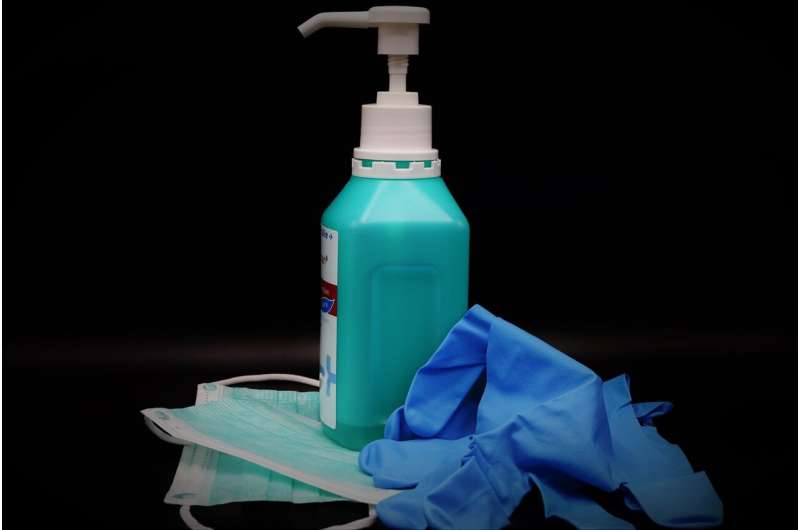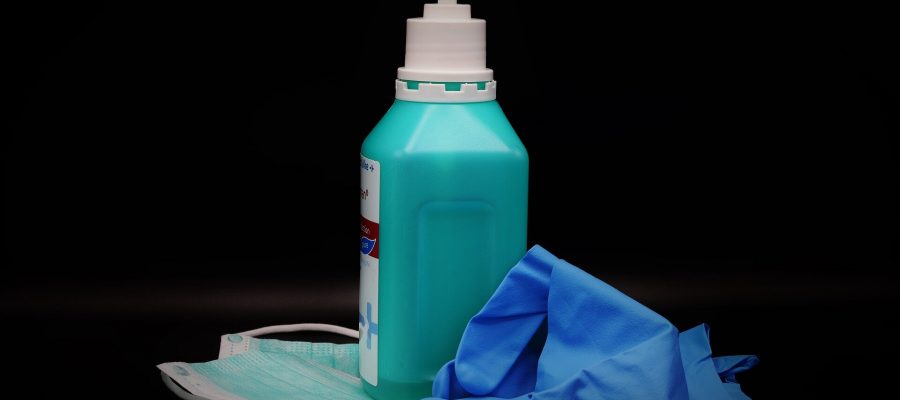
Nursing homes that use a chlorhexidine bathing routine to clean the skin, and an over-the-counter antiseptic to clean the nose, prevent serious infections and reduce the amount of antibiotic-resistant organisms in the nursing home setting, according to the findings of researchers at Harbor-UCLA Medical Center, the University of California, Irvine, and the Centers for Disease Control and Prevention (CDC). The findings were published in the New England Journal of Medicine.
“The cleansing protocol, called universal decolonization, substantially reduced the number of nursing home residents requiring hospitalization due to infection,” said lead author and Lundquist Investigator, Loren Miller, MD, MPH. Dr. Miller is the Chief of Infectious Diseases at the Lundquist Institute for Biomedical Innovation at Harbor-UCLA Medical Center in Torrance, California.
The study, “Nursing Home Decolonization for Infection and Hospitalization Prevention,” involved nearly 14,000 residents at 28 California nursing homes in Orange and Los Angeles counties.
Robert Otto Valdez, Ph.D., MHSA, director of U.S. Agency for Health care Research and Quality (AHRQ), said that for an older person “having an infection and needing to be transferred to the hospital for care can be life-threatening. Now nursing homes have another tool to help them prevent infections, reduce transfers, and keep our older adults safe.”
On any given day, more than 1 million people live in the nation’s 15,000 nursing homes. Each year, 3 million health care-associated infections (HAIs) such as methicillin-resistant Staphylococcus aureus (MRSA), bloodstream and urinary tract infections occur in U.S. nursing homes. Residents are at high risk for these infections due to age, wounds, medical devices, and complex illnesses.
MRSA and other pathogens can live on a person’s skin and in their nose without making them sick. Proactively removing the potentially harmful bacteria can reduce the chances of developing an infection or spreading it to others.
During the 18-month study, Dr. Miller and his team compared 14 nursing facilities using standard bathing routines with 14 facilities using the antiseptic soap chlorhexidine and nasal swabs with povidone-iodine (iodophor) to remove pathogens from residents’ skin and nose.
Both antiseptic products have been used in health care for more than 60 years.
The nursing homes following the decolonization protocol saw a significant reduction in the overall prevalence of multidrug-resistant organisms, including MRSA, vancomycin-resistant Enterococci and other resistant bacteria. No change in the prevalence of multidrug-resistant organisms was detected in residents of nursing homes that used routine bathing.
“CDC is excited to see the results of a nursing home-focused infection prevention intervention being published. Given the growing concern of harm from antimicrobial-resistant germs in nursing homes, the impact of this decolonization bathing program is quite important and provides a concrete action that facilities can use to protect nursing home residents,” said Nimalie Stone, MD, senior advisor for long-term care in CDC’s Division of Health care Quality Promotion, and technical advisory panel member for the trial.
In the routine bathing nursing homes, an average of six residents were hospitalized for infection each month per 100 occupied beds. In contrast, nursing homes using the enhanced bathing routine had two fewer residents hospitalized for infection per month per 100 occupied beds. The decolonization routine didn’t need to be perfect to prevent infection and hospitalization: 87% used the antiseptic soap as intended; 67% used the iodine-based nasal swab as intended.
“Our findings suggest that changing to an antiseptic soap and cleaning the nose with iodophor is a highly effective way to prevent dangerous infections in nursing homes,” said Miller. “Compared to other health care strategies, this is a relatively simple win for nursing homes. We hope nursing homes will want to adopt it.”
Dr. Miller’s team worked in tandem with the team of Dr. Susan Huang at University of California, Irvine (UCI) to conduct this clinical trial. Dr. Huang is a leader in the field of infection prevention and the medical director of epidemiology and infection prevention for UCI Health and the Chancellor’s Professor of Infectious Diseases at UCI School of Medicine.
Dr. Miller is a nationally recognized expert treatment and prevention of antibiotic-resistant infection. The findings add to a growing body of Dr. Miller’s research.
More information:
Loren G. Miller et al, Decolonization in Nursing Homes to Prevent Infection and Hospitalization, New England Journal of Medicine (2023). DOI: 10.1056/NEJMoa2215254
Journal information:
New England Journal of Medicine
Source: Read Full Article
